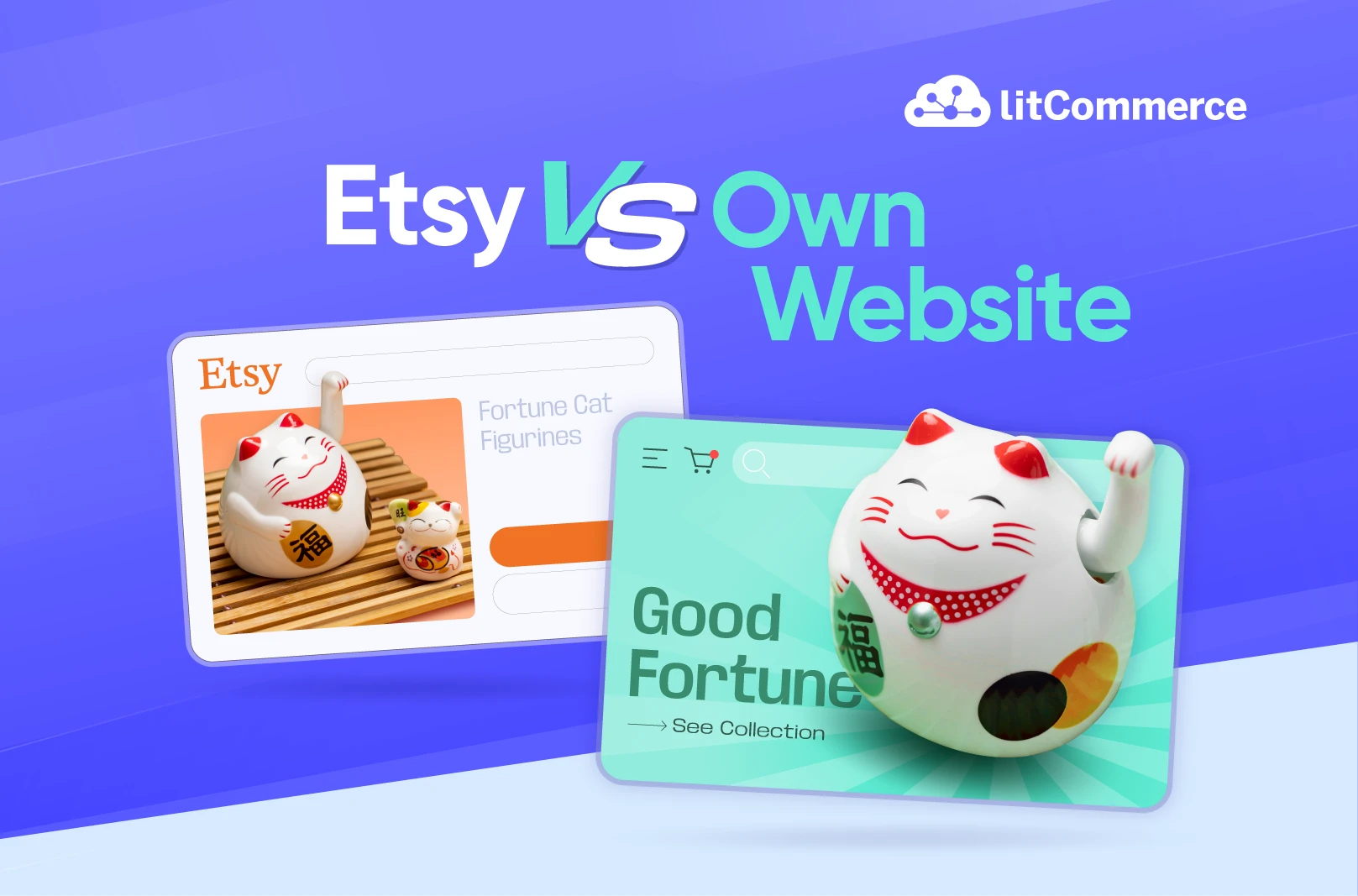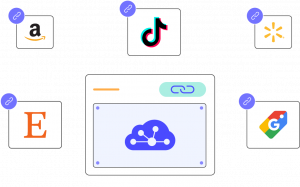Etsy vs own website – which one will be your best channel to launch an online presence? Let us share some perspectives:
- Etsy is easy to get started with, even for beginners in the eCommerce realm. You won’t likely encounter any trouble when it comes to store setup, listing, or shipping. Another plus point for Etsy is that you will tap into its massive built-in traffic since Etsy is a well-trusted shopping space for both creative sellers and shoppers.
- Your own website, on the other hand, is more complex, as you will be assuming your full role as a seller. Selling from your own website versus Etsy also means you are not tapping into as much traffic potential in the first place, as you have to draw it all from scratch. But we know something about having a website – your potential is endless, especially when you’ve got some technical expertise to offer.
It’s undeniable that the booming presence of various top marketplaces and eCommerce platforms offers sellers like you a wide range of options for starting an online business. So, ready to know more about our comparison of Etsy vs own website?
In this article, LitCommerce will be providing you with essential information on both options. Let’s dive into
- What is Etsy, or an eCommerce website? Some pros & cons of each type
- 4+ key differences between selling on Etsy vs own website
Without further ado, let’s talk about it!
Etsy vs Own Website: An Overview
The very first part of our Etsy vs own website comparison comes to their basics. Why not review some highlights and then delve deeper into the details?
What is Etsy?
Etsy is one of the best-selling platforms that helps connect small indie artists, creators, and collectors with consumers searching for gifts, collectibles, and goods with a more personalized taste. More about Etsy, everything on this marketplace is self-made, collected, curated, and sold by its sellers. And about the pros and cons? We’ve listed them right below!
Pros of selling on Etsy
- Great customer exposure
- Easy-to-use interface
- Low-cost
Cons of selling on Etsy:
- Item category limit
- Lack of store customization
What is an eCommerce website?
An eCommerce website is built to connect buyers with products or services for online trading activities. While using an eCommerce website, you are totally responsible for building a website, managing orders, payment, shipping, inventory, and everything else to run your business. Some top eCommerce platforms you may have heard of include Shopify and Wix.
Evidently, a standalone website offers greater control, but also presents more challenges. So, here’s a sum up of its pros and cons.
Pros of selling on your own website
- Flexible and personalized tools
- Great scalability
- No restrictions and regulations on products
Cons of selling on your own website
- Limited customer exposure
- Risky high-cost
Sell on Etsy and Your Website with LitCommerce
If you already have a web-based store, it would take just ONE click to sell on Etsy with LitCommerce! Have you thought of multi-selling in that way?
Selling on Etsy vs your Own Website: 4+ Key Differences
When determining whether to sell on an Etsy shop or website, it all boils down to what kind of eCommerce business you set goals for. To make a better judgment between these two options, let’s examine the key differences in detail.
Comparing Etsy vs your own website, you might also want to discover:
1. Etsy vs own website: Traffic & customer base
The first factor to bring to the discussion table is traffic and customer base.
Selling on Etsy
Etsy attracts approximately 88.5 million to 95.5 million active buyers annually. The site is among the top-of-mind marketplaces for shoppers looking for special and personalized goods. Therefore, when you sell on the Etsy website, you can benefit from such a well-established reputation.
For beginners, selling on Etsy is more beneficial when the platform is already well-established, with its large customer base and high site traffic. To increase your store views on Etsy, simply focus on developing your business and investing in effective marketing. Being capable of capturing a share of Etsy’s existing market already helps push your business to the next level.
Selling on your own website
It’s a different story when it comes to increasing traffic and customer base for an independent website. You can hardly convert any customers without making strenuous efforts to get site visitors in the first place. Your site visitors will be based entirely on your own brand reputation.
In this case, selling on your own website is more difficult. You will always have to run marketing campaigns to gain and retain customers. Nonetheless, customers sometimes don’t trust standalone websites as they trust popular marketplaces. This makes converting customers even harder.
Verdict: In terms of selling on Etsy vs your own website, having an Etsy store will be much less challenging in terms of traffic and customer base. The marketplace already attracts a great number of users and an abundance of repeat buyers for you to focus on growing the business.
2. Etsy vs own website: Time & money
An ideal platform for your business model should align with your financial budget. Let’s break down the time and money factors of Etsy vs own website.
Selling on Etsy
One of the key benefits of Etsy lies in the account setup process. It doesn’t cost you much time to create an Etsy business account. All you need is to have a consumer account to register a seller account. Once you have finished setting up your account, you are ready to start selling on the platform.
On the money side, Etsy is famous for its low entry barriers. In general, you only have to deal with 5 types of fees including
- Subscription fee: Either free or $10 per month for more features
- Listing fee: The cost to list on Etsy is a flat amount of $0.20 per listing. You are also subject to a renewal fee of 20 cents per sale.
- Store setup fee: $15 for a new Etsy store opening. Note that this is a non-refundable fee and is a one-time purchase only.
- Transaction fee: 6.5% of the total cost of each transaction.
- Payment processing fee (charged upon using Etsy payment): 3% + $0.25 (for US sellers).
- Advertising fee: Either 12% or 15%, depending on annual revenue.
Except for the flat listing fee, you only have to pay other fees when you make a sale. On that account, Etsy stands as a low-cost alternative for many online sellers.
Selling on your own website
On the other hand, setting up your own website is exceedingly time-consuming. You’ll have to build your website from scratch, from designing your website visuality and finding a suitable VPS hosting provider, to setting up payments and inventory.
In the matter of financial resource allocation, you’ll be dealing with all kinds of fees. The fee may include the following categories
- Hosting and domain
- SSL Certificate
- Website template or theme
- eCommerce integration
- Apps and plug-ins
- Organic & Paid Marketing
Verdict: Regarding time and money when choosing Etsy or website, Etsy may be a better choice for business entrepreneurs having a limited budget and time. You have to pay nothing for the cost of an Etsy shop when building your business on the platform.
3. Etsy vs own website: Inventory management
One of the most essential aspects of running an online business is inventory management. With effective inventory management in place, you can optimize your operational costs while consistently meeting your customers’ demands on time. So let’s see how inventory management differentiates between Etsy vs own website.
Selling on Etsy
When selling on Etsy, you can either use its in-platform management dashboard or adopt third-party tools like LitCommerce for inventory management when selling on multiple channels.
If you’re new to the Etsy marketplace, its Shop Management dashboard might be a great way to get started. You can set quantities, variations, and additional data (i.e color, materials, etc.) for your product listings, but it’s where it bottoms out.
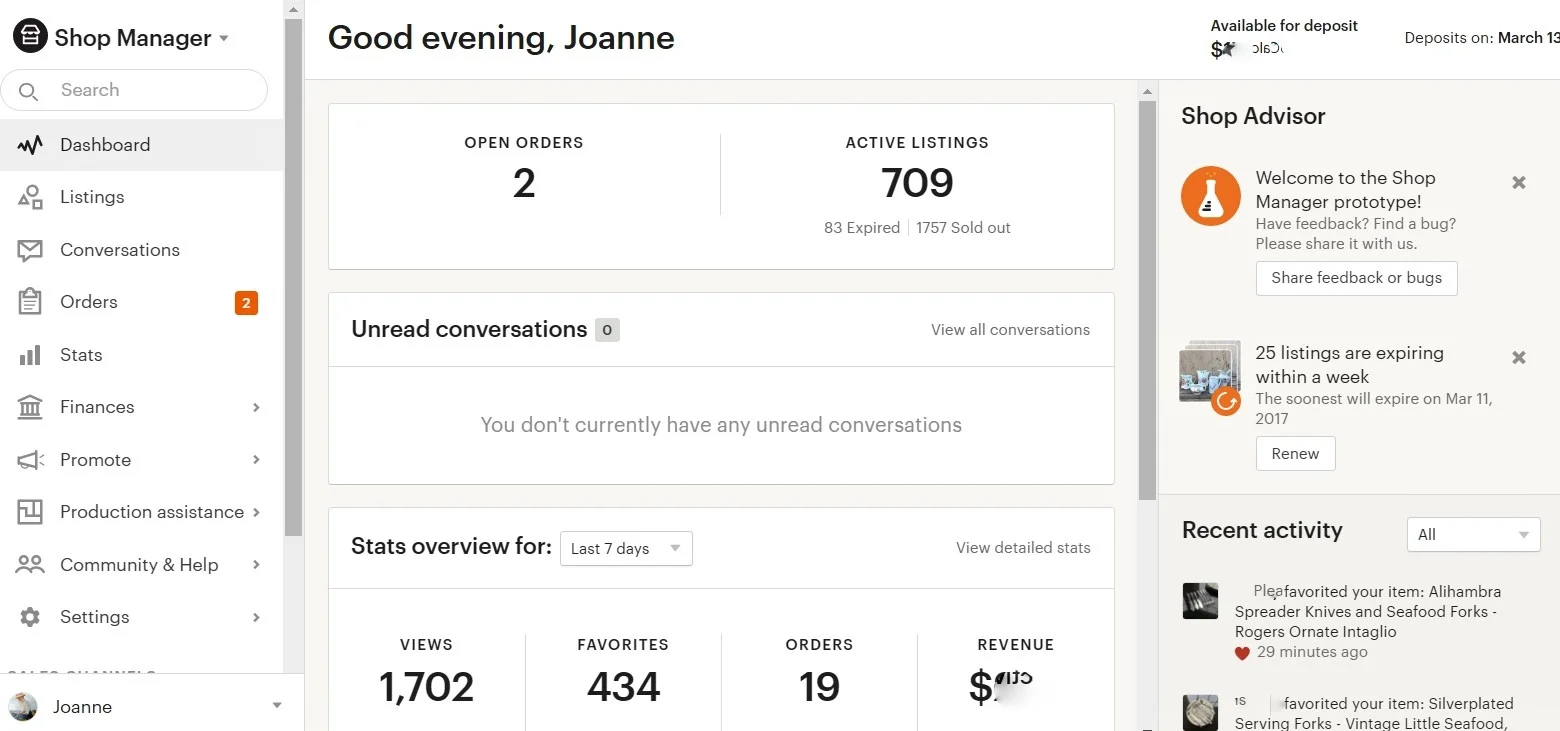
Such an inventory management tool can be of great assistance to someone starting their online business journey. Nevertheless, it is restricted and cannot afford a massive scale-up. As your business expands, you may easily lose track of your inventory due to a lack of stock updates and low-stock alerts.
Most Etsy chart-busters, especially those who operate on multiple selling channels, have to resort to using third-party integrations for better inventory management. With the help of LitCommerce, sellers can now easily and effortlessly manage stock levels across multiple platforms.
What it comes down to is that you either need to be willing to be hypervigilant and attentive with your systems to ensure you don’t run into trouble overpromising and under-delivering (which is easy if you’re busy and forget to check materials and stock levels), or invest in the right software to support you.
Selling on your own website
When operating your own website, you have only one option for inventory management: managing it yourself. You will need the help of inventory integrations and add-ons using the API for stock updates and other inventory data.

Managing eCommerce websites also necessitates the need for warehouse acquisition or space upgrade unless you are dropshipping. Only in this way can you meet customer demands or avoid selling products without affecting your profit margin.
There is one more drawback of self-inventory management compared to adopting in-marketplace warehouse services. This is the financial risk of purchasing and holding inventory that can be easily damaged. Such scenarios can also leave a negative impact on your business margin.
For many sellers using websites as a side investment to Etsy, using multichannel solutions is a great option. Such solutions help you integrate Etsy into your websites, managing inventory levels and product listings. This way, you can get rid of stock-related issues that include overpromising and under-delivering.
Verdict: Overall, Etsy’s inventory management dashboard is lagging behind other third-party stock management tools. It all boils down to whether you are willing enough to be hypervigilant and attentive with your inventory system, or choose to live headache-free by adopting an inventory solution.
4. Etsy vs own website: Marketing & brand recognition
The last aspect to consider is marketing and brand recognition.
Selling on Etsy
Considering its large customer base, Etsy is a lucrative target for many sellers. This also suggests a highly competitive level and a saturated market that demands great investment to stand out.
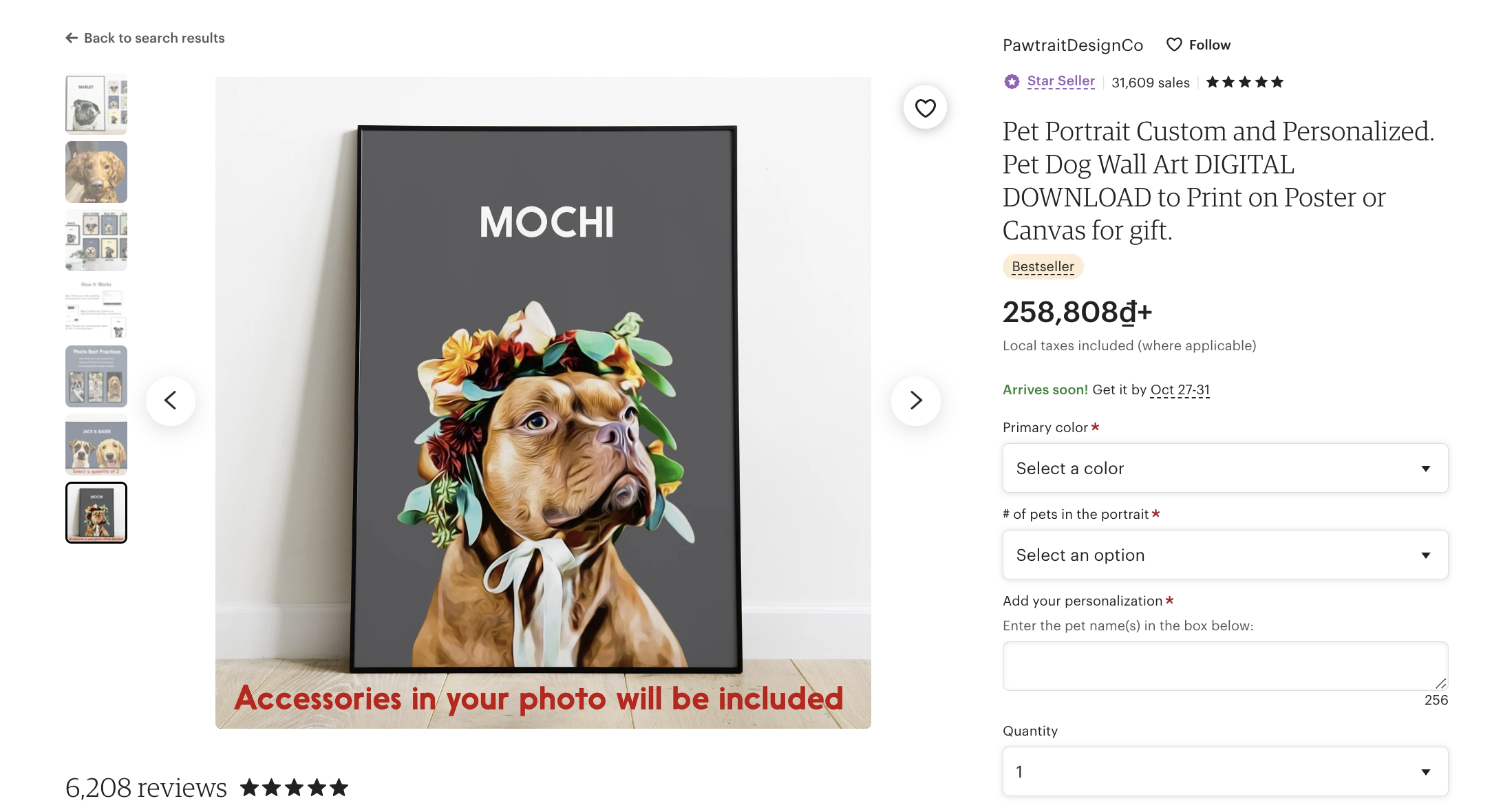
Etsy provides sellers with options for running in-marketplace advertisements. Through optimized ads, your items have the opportunity to reach a wider audience of customers. However, it’s a major challenge for beginners when they have to constantly spend on bidding ads against other competitors.
Most of the time, customers browse the Etsy marketplace to find the best deal. Such incidents indicate shopping habits that have nothing to do with business branding. To gain a competitive advantage, sellers must continually strive to offer a better deal than their direct competitors.
In the long run, your brand can only establish a reputation once you become a top Etsy seller.
Enhance Your Marketing Efforts on and beyond Etsy
Strengthen your marketing effort by selling on Etsy and your own website. And why not do that today, starting with learning about Etsy integration?
Selling on own website
Sellers having an independent website enjoy better brand recognition and have more control over marketing activities. While attracting site visitors can be a major challenge, you can gain massive brand recognition once you successfully retain customers.
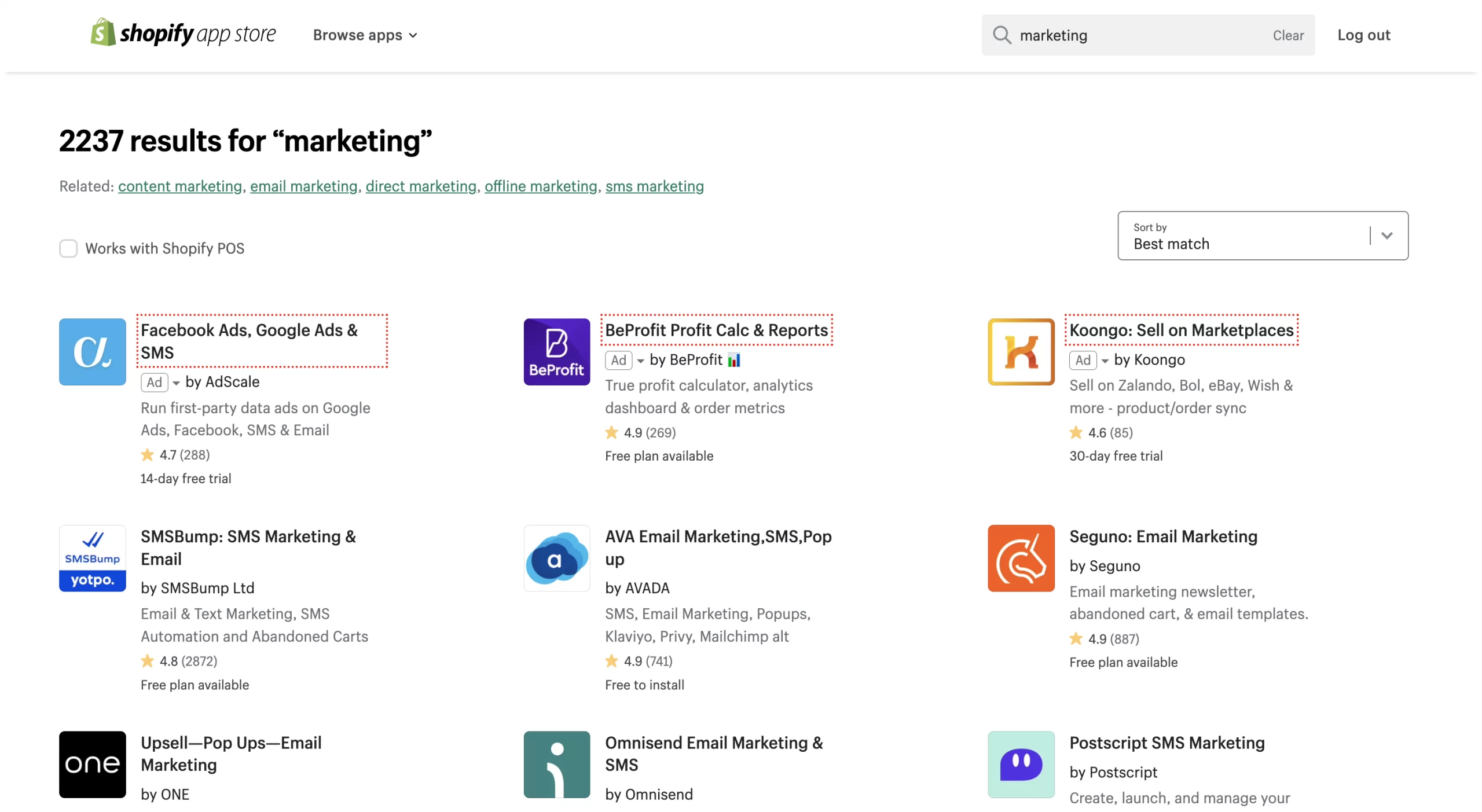
A significant advantage of owning a website is that eCommerce platforms often offer a wide range of built-in marketing tools. These tools, when adopted in conjunction with a proper marketing strategy, can help businesses grow faster and more sustainably.
Brands with well-established reputations tend to perform better on various platforms in the long term. This is because when customers make a purchase decision, it’s no longer solely due to the matter of pricing. However, they browse your site and decide to buy under the influence of your branding.
Verdict: In short, building an independent website brings great benefits in terms of marketing and brand recognition. You will have complete control over how you run marketing campaigns and advertise your brand images.
5. Etsy vs own website: Seller support and sustainability
Last but not least, we look forward to sharing with you information about the seller support and sustainability of your store. We know this would be extremely helpful for those starting their online businesses and aiming for long-term success. Here is our sharing on this matter.
Selling on Etsy
Etsy offers comprehensive support for sellers through various channels, catering to their needs and helping them navigate the intricacies of running a successful online shop. You may know some of these:
- Knowledge Base: Access articles, guides, and FAQs covering all aspects of selling on Etsy.
- Community Forums: Engage with fellow sellers for advice, support, and updates.
- Education Resources: Attend webinars, workshops, and courses on topics like marketing and product photography.
- Direct Support: Reach Etsy’s support team via email, live chat, or phone for personalized assistance.
- Seller Handbook: Find comprehensive guidance on listings, policies, and best practices.
- Policy Guidance: Understand Etsy’s transparent policies for seller behavior and product listings.
So, is Etsy supportive of its sellers? We believe it is a firm YES!
Now, moving on to sustainability. We think that it will be unpredictable for you. Our primary reason for this is that you are following the house rule of selling on Etsy.
Evidently, Etsy will be updating its selling policies to maintain a safe and dynamic shopping experience. On this ground, sellers are muchly following those changes too. Therefore, will your sustainable selling strategy change over time? It will, definitely. And that’s for Etsy.
Selling on own website
From our observation, seller support on their own website is not as diverse and strong as that on marketplaces like Etsy. However, regardless of the platform you are selling on, it is essential to guide sellers and ensure smooth operations.
Cutting to the long story short, here are some typical support methods we’ve witnessed:
- Knowledge base: Access articles, guides, and tutorials for all aspects of selling.
- Community forums: Connect with fellow sellers for advice and networking.
- Education and training: Attend webinars and courses on marketing and other topics.
- Direct support: Contact the support team via email, live chat, or phone for assistance (this is pretty rare though).
- Policy guidance: Understand platform policies for compliance and best practices.
That’s for support.
Regarding sustainable matters, we believe that selling on your own website provides a significant guarantee of stability in the long run. You’ll the one who makes your rules, and you will modify your selling strategy based on your business goals, without the impact of outer factors. Is your own website winning at this “sustainable” aspect? Yes, it is!
Verdict: We truly think Etsy has far greater seller support than own websites. However, own websites give you the freedom and sustainability in the long run. So this aspect is muchly an equal match for us.
Our Final Decision
With every factor stacking up, making a decision between Etsy vs own website ties with your business demands and budget availability.
If you’re a new business owner seeking affordable options, Etsy is an ideal choice. Even if you’re someone testing the waters on different marketplaces, Etsy is still worth a try. The platform requires no significant effort or resources to set up and start selling, except for the flat listing fee.
Nevertheless, running your own website may be more beneficial when you want to expand your business and grow a sustainable and recognizable brand. And just in case you’re ready for the next multichannel selling chapter, LitCommerce will be more than happy to consult with you about our Etsy integration, with no hidden fees!
Selling on Etsy vs Your Own Website: FAQs
- Is it better to create a website or sell on Etsy?
If your ultimate goal is a scalable and sustainable brand, building a website is the better route. If the brand-building impact isn’t one of your priorities and you don’t want to invest much time in setting up the website, then Etsy is probably the better option.
- Should you have an Etsy and website?
It’s very common for artists and hand-made sellers to have both an Etsy shop and their own eCommerce storefront! Although it may take extra time to manage, it is a great way to see which one works better for your business model.
- Is it worth it to sell through Etsy?
Selling on Etsy is definitely worth a try in 2022. With a significant amount of daily site visitors, hopping on Etsy is the quickest and cheapest way to generate sales and grow your business.
The Bottom Line – Etsy, Own Website, or Both?
Eventually, why make a choice when you can build a store on both? Selling on various channels with LitCommerce is the quickest way to leverage and scale your business. We offer an easy and effortless multi-channel solution to help you manage listings and inventory across platforms within a single dashboard.
If you’re interested, please drop us a message, and our support team will be back in touch with you shortly. You can also visit our Retailer blog for helpful tips and growth strategies.

